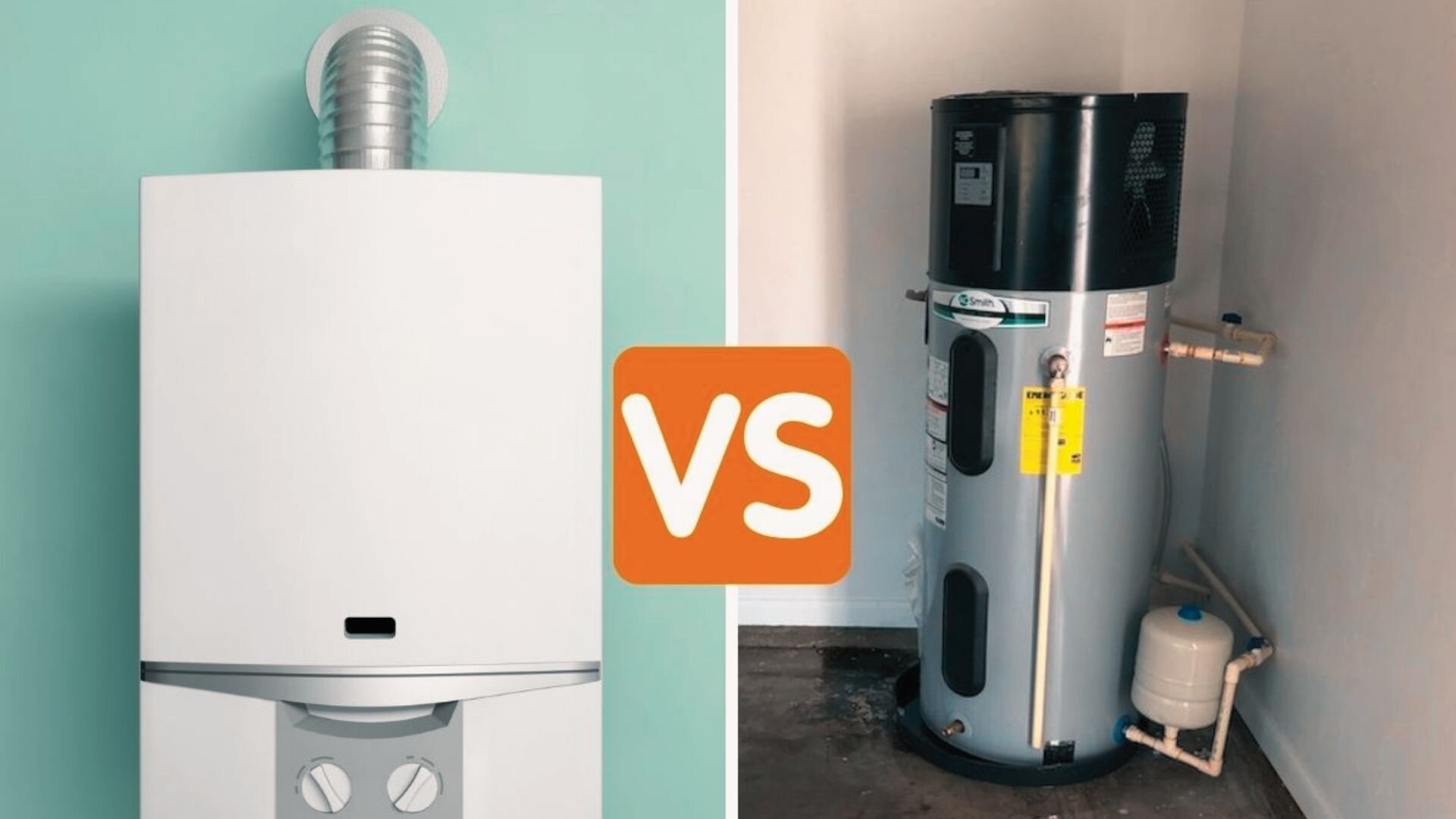
Choosing a hot water heater for your home can be a bit overwhelming, with tankless and tank electric models as the main contenders. Each option comes with its own set of features and benefits, which can make the decision a tad tricky.
In this blog, we’ll dive into tankless and tank electric hot water heaters, looking at their main features and benefits. Learn more about residential wiring guide. By the time you finish reading, you’ll know which type suits your needs, budget, and lifestyle best.
So, let’s explore the differences between tankless and tank electric hot water heaters to help you make an informed decision about your home.
What are Tankless Electric Hot Water Heaters?
Tankless water heaters, often called on-demand heaters, are smart devices that provide hot water without storing it. Unlike traditional models, tankless electric heaters heat the water right as it flows through, so there’s no need for a big tank full of preheated water.
This method gets rid of the standby heat loss that tank heaters experience, boosting energy efficiency. Designed to heat water immediately on demand, tankless heaters provide a continuous and seemingly never-ending supply of hot water.
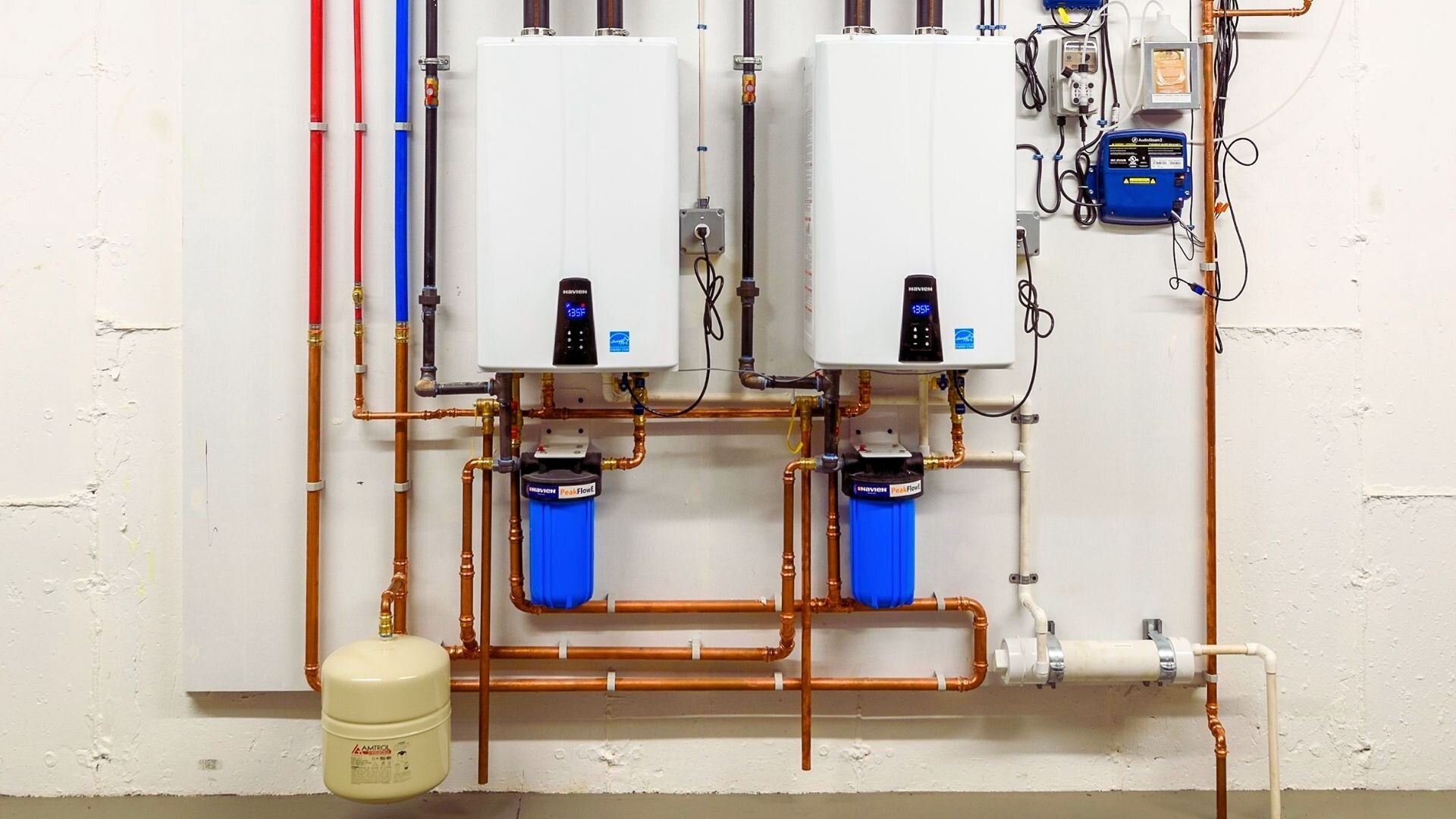
This feature mainly benefits households with high hot water demands or when multiple hot water sources are used simultaneously. Additionally, tankless electric heaters are known for their compact size and space-saving design, making them ideal for homes with limited space.
Keep in mind, tankless electric hot water heaters generally come with higher upfront costs compared to tank heaters. Installation might also need some electrical tweaks. But many homeowners find these worthwhile for the energy efficiency, constant hot water supply, and space-saving perks that come with tankless systems.
What are Tank Electric Hot Water Heaters?
Tank electric hot water heaters, also known as storage tank water heaters, are traditional water heating systems that store and heat a predetermined volume of water in a large tank. They are commonly found in residential homes and are known for their reliability and simplicity.
Traditional tank storage heaters use an electric element to heat water stored in the tank. Once it hits the desired temperature, it stays heated and ready until you need it.
When hot water is needed, the tank releases the preheated water to the faucets or appliances in the house. Tank storage water heaters are relatively easy to install and require minimal maintenance.
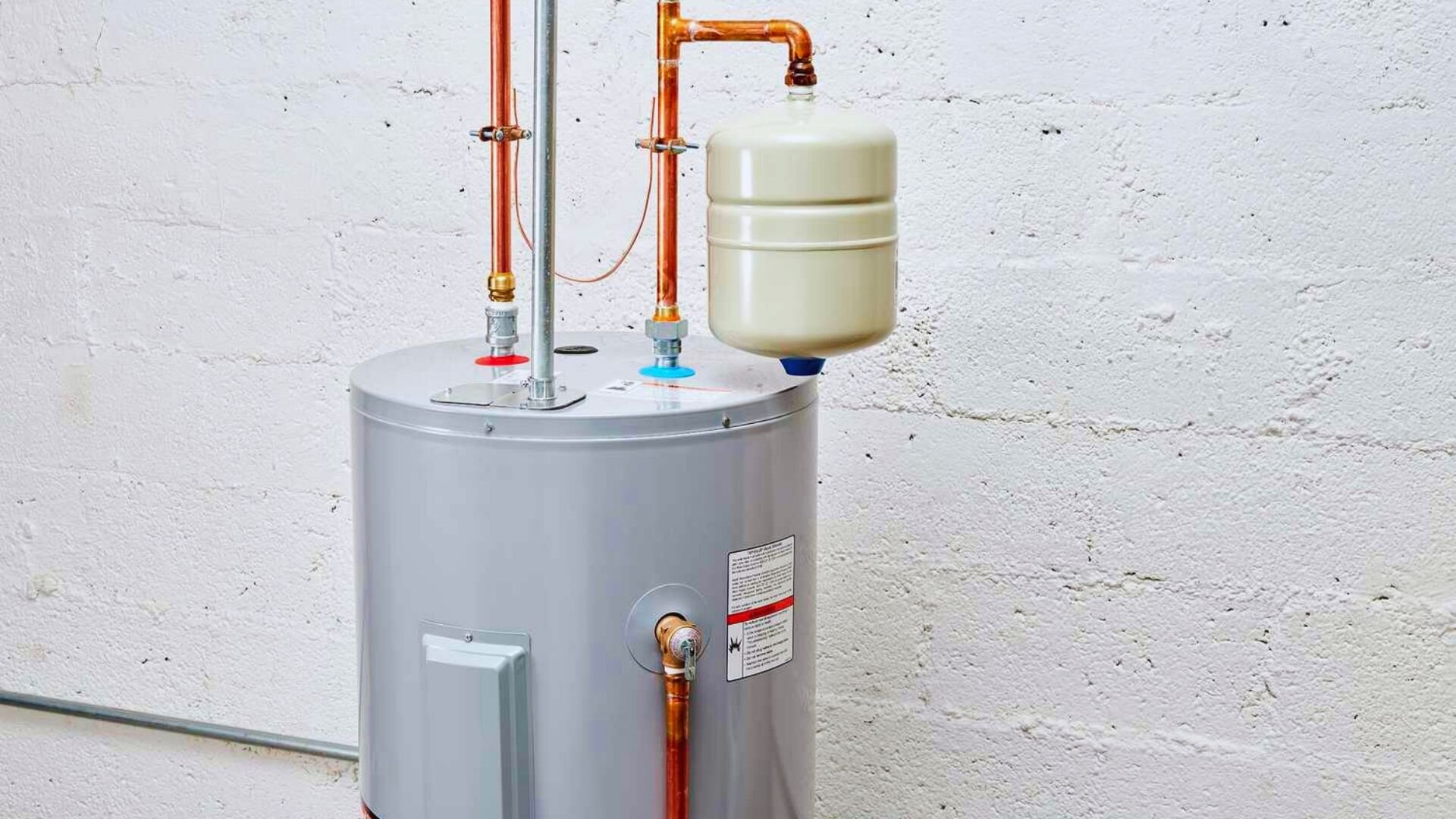
If you choose a conventional storage water heater, ensure the energy source is more affordable (e.g. natural gas, LPG). They are also typically more affordable upfront compared to tankless electric heaters.
One limitation of tank electric water heaters is their finite hot water supply. Once the stored hot water is depleted, it takes time for the tank to heat a new batch of water, resulting in a temporary interruption in hot water availability.
Tank electric heaters can experience standby heat loss, where the heat dissipates from the stored water when not used, leading to slightly higher energy consumption. Despite these limitations, tank electric hot water heaters are popular for homeowners looking for a reliable and cost-effective hot water solution.
Comparing Key Factors
When choosing a hot water heater for your home, understanding the key factors that differentiate tankless and tank electric models is essential. These are critical factors to compare tankless and electric hot water heaters comprehensively. By examining these factors, you’ll gain valuable insights to help you make an informed decision and select the right water heater for your home.
Energy Efficiency
Tankless electric hot water heaters have a clear advantage over tank heaters in terms of energy efficiency. Tankless heaters only heat water as needed, eliminating the standby heat loss experienced with tank heaters.
This means that energy is not wasted on continuously heating and maintaining a large volume of water. As a result, tankless electric heaters can be significantly more energy-efficient, leading to potential cost savings on utility bills and reduced environmental impact.
Hot Water Capacity
When comparing tankless and tank electric hot water heaters, it’s essential to think about how much hot water they can provide. Tank electric heaters usually boast a larger storage capacity, which means they can deliver more hot water at once.
This makes tank heaters suitable for households with high hot water demands, such as multiple bathrooms or large families. On the other hand, tankless electric heaters provide hot water on demand and do not have a storage limitation.
While they can deliver a continuous hot water supply, their output capacity may be limited, mainly if multiple hot water sources are used simultaneously. This factor is essential to consider when determining the suitability of tankless electric heaters for your specific hot water needs.
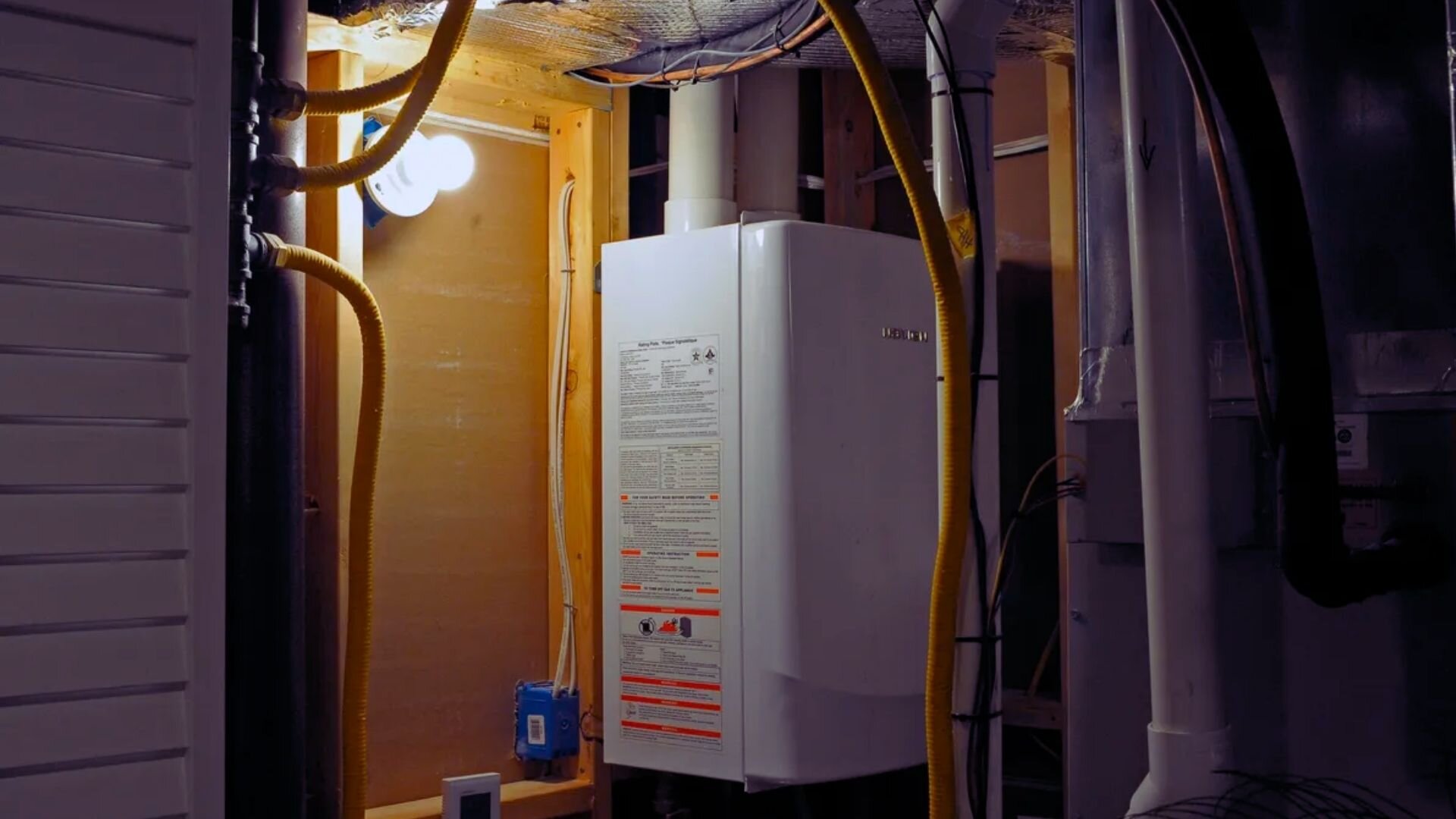
Installation and Maintenance
The installation and maintenance requirements differ between tankless and tank electric hot water heaters. Tank electric heaters are relatively straightforward to install and usually require minimal modifications. Maintenance typically involves periodic flushing of the tank to remove sediment build-up.
In contrast, tankless electric heaters may require more complex installations, including electrical modifications and potentially upgrading the electrical system to accommodate the higher power requirements. Maintenance for tankless heaters may involve regular descaling to prevent mineral build-up and ensure optimal performance.
Cost Considerations
Cost is essential when comparing tankless and tank electric hot water heaters. Tankless electric heaters generally have higher upfront costs compared to tank heaters. The unit’s price and the potential need for electrical modifications during installation can contribute to the higher initial investment.
However, tankless electric heaters may offer long-term cost savings over time due to their energy efficiency and lower utility bills. Tank electric heaters, while more affordable upfront, may have higher ongoing energy costs due to standby heat loss. Assessing your budget, considering both upfront and long-term costs, is crucial in determining which option aligns with your financial considerations.
Environmental Impact
The environmental impact is increasingly significant when choosing a hot water heater. Tankless electric hot water heaters are generally considered more environmentally friendly.
Their energy-efficient operation reduces greenhouse gas emissions and energy consumption. Additionally, tankless heaters do not require the disposal of a large tank when they reach the end of their life cycle.
While still widely used, tank electric heaters consume more energy due to standby heat loss and may contribute more to overall energy consumption and carbon footprint. It’s worth noting that both types of heaters can be more environmentally friendly if they are powered by renewable energy sources such as solar panels.
Durability and Lifespan
Durability and the expected lifespan of a hot water heater are essential factors to consider when comparing. Tankless electric hot water heaters are generally considered more durable and longer-lasting than tank electric heaters.
This is because tankless heaters don’t have a storage tank that can corrode or develop leaks over time. On the other hand, tank electric heaters are prone to wear and tear, especially on the tank itself.
Over time, the tank may develop rust or other issues that can affect its performance and lead to leaks. The average lifespan of a tankless electric heater is typically around 20 years or more, while tank electric heaters generally last between 10 to 15 years.
Factors to Consider When Choosing
Picking the right hot water heater means taking a few factors into account to make sure it suits your needs. Here, we’ll go over four key things to think about when choosing yours:
Household Size and Hot Water Demand
The size of your household and the demand for hot water play a crucial role in determining the appropriate hot water heater. Larger households with more occupants and higher hot water usage require a water heater with a larger hot water capacity to ensure an adequate supply.
Assessing your household’s hot water demand, including the number of bathrooms, showers, and other hot water-consuming appliances, will help you determine the appropriate size and capacity of the water heater needed to meet your needs.
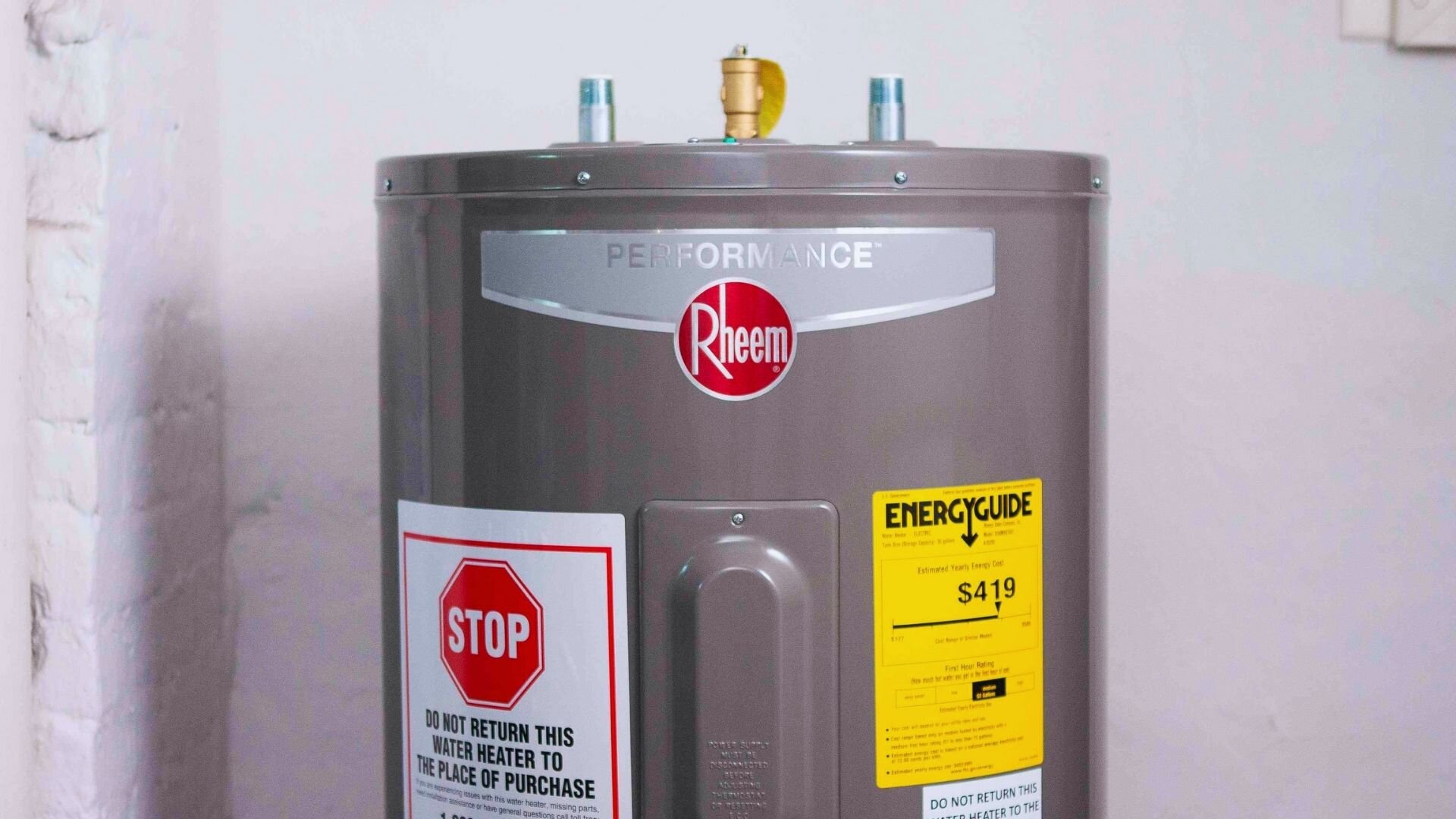
Budget and Cost Constraints
Budget considerations are essential when choosing a hot water heater. You should determine the amount you are willing to invest upfront and consider the long-term cost implications of the selected water heater. Water heaters have varying upfront costs, installation expenses, and ongoing maintenance requirements.
Energy efficiency and the associated utility costs should be factored into the budget consideration, as more energy-efficient models may have higher initial costs but can result in long-term savings.
Space Availability
Another critical factor to consider is the available space in your home. Some water heaters, such as tank electric heaters, require significant floor space for installation.
On the other hand, tankless electric heaters are compact and can be mounted on walls, saving valuable floor space. Assessing the available space in your home, whether in a utility room, basement, or other areas, will help determine which type and size of water heater can be accommodated comfortably.
Long-Term Goals and Sustainability
Considering your long-term goals and commitment to sustainability is increasingly important when choosing a water heater. Energy-efficient models, such as tankless electric heaters, can help reduce energy consumption and lower utility bills over time.
If you focus on environmental sustainability, consider exploring renewable energy options, such as solar-powered water heaters. Evaluating your long-term goals and sustainability priorities will guide you towards a water heater that aligns with your values and contributes to a greener future.
Making Informed Choices for Hot Water Efficiency and Savings
When it comes to choosing between tankless and tank electric water heaters, it’s essential to carefully consider factors such as energy efficiency, hot water capacity, installation and maintenance requirements, cost considerations, environmental impact, durability and lifespan, availability and compatibility of energy sources, household size and hot water demand, budget and cost constraints, space availability, and long-term goals and sustainability.
At Enersol Electrical, we understand the importance of finding the right hot water solution for your home. Our team of experts is here to help you navigate the options and provide guidance based on your unique needs. Whether you’re considering a tankless or electric hot water heater, we can assist you with installation, maintenance, and electrical requirements.
Don’t hesitate to contact us at Enersol Electrical for professional advice and assistance in choosing and installing the perfect hot water heater for your home. Enjoy the benefits of efficient hot water and savings while ensuring a reliable and sustainable solution.